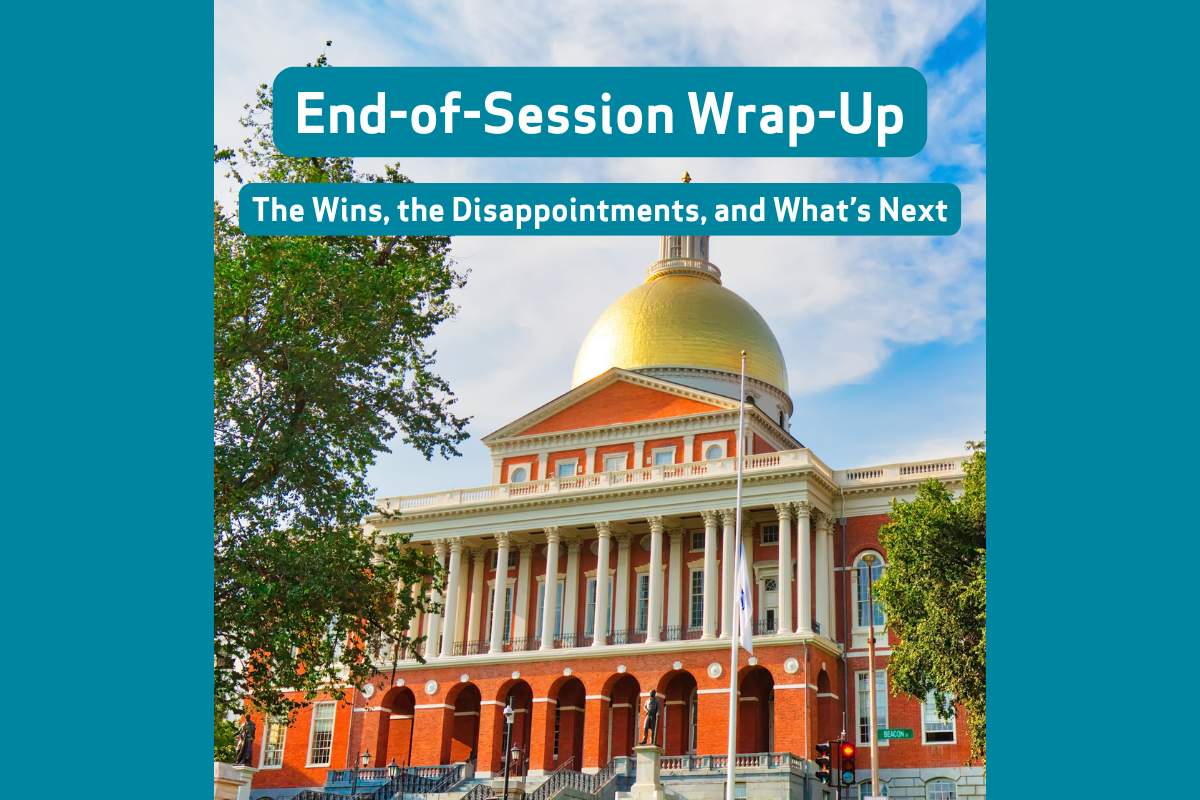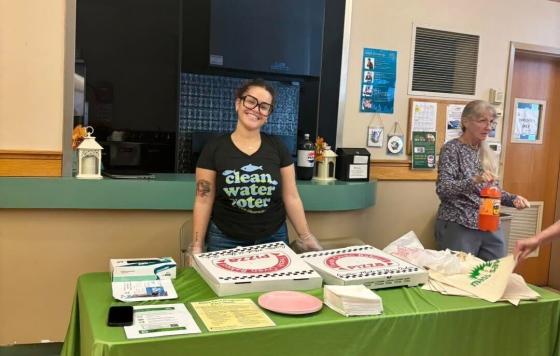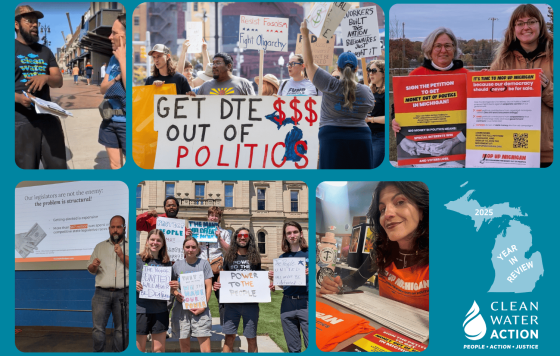
Have you ever felt two opposing feelings at the same time? Yeah, us too. The Massachusetts state legislature finished the formal session at the end of July, and there is no one mood that fully describes our feelings right now. There are things to be excited about and significant disappointments. We would love to share these ups and downs with you.
Here’s the short version:
We’re super excited that legislation passed (and is now on the Governor’s desk) to protect firefighters from toxic PFAS in their gear, and to direct nearly half a billion $$ to public housing decarbonization and green housing initiatives. Woohoo!
We’re appalled and disappointed that bills to improve air quality and reduce the siting of polluting facilities in EJ communities, to ban a wide array of products with PFAS, to protect children from toxic chemicals, to halt so-called "chemical recycling,” and to protect workers on public construction projects were left on the cutting room floor.
Before we dive in, I want to recognize our amazing summer communications and campaigns intern, Chhimi Sherpa who made this wrap-up possible. Her extensive research on all Clean Water Action’s priority legislation provided the foundation for this update. Now, let us dive into the priority legislation we championed this year and what happened with each one. Let us start with what went well.
What passed?
Zero Carbon Renovation Fund (ZCRF)
Reducing carbon emissions affordably is one of the most viable paths towards meeting our climate goals in Massachusetts. After the original bill creating a Zero Carbon Renovation Fund didn’t move, the ZCRF coalition rallied around the allocation of $425 million in the Affordable Homes Act for public housing decarbonization and green housing initiatives. It passed and made it to the Governor's desk before the end of session! Clean Water Action is proud to stand with our ZCRF coalition partners and share this win of nearly half a billion dollars for green housing in the Bay State!
PFAS Removed from Fire Fighters’ Gear
Firefighters put everything on the line to protect us in our greatest times of need, yet their sacrifice goes beyond the dangers of running into burning buildings. There are toxic PFAS chemicals in their gear which are linked to cancer, and the rates of cancer in the fire service are through the roof. Massachusetts has passed a bill that bans manufacturers from selling firefighter turnout gear with intentionally manufactured per- and polyfluoroalkyl substances (PFAS) by January 2027. The bill also requires the labeling of turnout gear made with PFAS by January 2025. This is an important step towards protecting the first responders who protect us.
What’s disappointing? (brace yourself)
Toxics: PFAS and Toxic-Free Kids
An Act for Toxic-Free Kids aimed to protect children from harmful chemicals in products. It would have required businesses to disclose toxic chemicals in children’s products and banned PFAS in these products, including artificial turf. Unfortunately, this bill did not pass. No one should have to wonder if their child’s clothing, toys, or bedding contains toxic chemicals, and we will continue to advocate for these protections.
In addition, widely supported comprehensive PFAS legislation that would have banned toxic PFAS from common consumer products, prohibited the application of biosolids containing PFAS on farmland, and set up funds for the remediation of water supplies contaminated with PFAS failed to pass even as neighboring states passed similar bills. Again, we are massively disappointed and will continue to push for protection from these harmful chemicals.
Environmental Justice: Air Quality
Along with our Environmental Justice partners, we pushed for policies to protect vulnerable environmental justice communities from air pollution. In the final weeks of the two-year session, it became clear that these policies would need to pass as amendments to larger bills. An amendment was proposed for the Climate Omnibus Bill that would have expanded the monitoring of particulate matter and other air pollutants in targeted overburdened communities. This amendment was not successfully included in the House or the Senate versions of the Climate Bill which, itself, failed to pass. An amendment to protect indoor air quality by creating a taskforce to address mold contamination was proposed to the Housing Bond Bill, but that amendment also failed to move forward. We are extremely disappointed that these public health measures failed to pass, meaning relief for children and families suffering from breathing polluted air is still not coming.
Environmental Justice: Siting of New Energy Infrastructure (Siting Reform)
The Massachusetts Legislature failed to pass a bill that would streamline the permitting and siting of new clean energy infrastructure. This was a missed opportunity to both enable more renewable energy and better protect communities historically harmed by the fossil fuel energy infrastructure. We will advocate for this legislation to be reintroduced in the next session starting January 2025.
Banning Chemical Recycling
Legislation banning chemical recycling didn’t move forward. Most of the plastic produced is never recycled, but the petrochemical lobby would have you believe that so-called “chemical recycling” facilities are the solution. They are not. Most of the facilities that have been built are actually “plastics to fuels” operations that melt plastics and extract low-grade liquid fossil fuels to be burned elsewhere. And this process comes at a cost. Plastics can contain thousands of different toxic chemicals which are transferred into the air as emissions or into the solid waste byproducts of plastic-to-fuel operations, and these facilities place a heavy toxic burden on communities near these sites as well as near the sites where the byproducts of these processes are ultimately disposed of or burned. We will continue to advocate for a ban on this expensive and dirty process while working for solutions that reduce the amount of plastic produced and consumed in the first place.
Project Labor Agreements
We are proud to be a part of the Green Justice Coalition's campaign to uplift communities by ensuring that the way we build public infrastructure advances environmental justice and creates a just transition to a sustainable climate future.
Project Labor Agreements (PLA’s) help ensure a green and equitable economy by committing to fair wages, benefits, training, and safety on public construction projects while creating strong career opportunities that increase equity in Massachusetts. A provision to expand the use of Project Labor Agreements (PLAs) was included in the Economic Development Bond Bill, which was passed in the House but unfortunately did not make it through the Senate.
Yes, there were major fumbles by our state legislature this year.
We share the feelings of disappointment with our grassroots partners and allies and are going to rally with them to continue the fight because there is a possibility that the legislature will return in the off-season for an informal session to finish the job.
So, we use our disappointment to double down on our determination to stand with those most impacted by environmental hazards and climate change and demand justice in policies and action by our policymakers! Please stay dialed in and ready to act—we cannot do this without you!
Thank you for your continued support and dedication to our shared mission.


